JerryLove
No longer a newbie, moving up!
- Joined
- Jan 1, 2014
- Messages
- 413
- Reaction score
- 50
- Location
- Tampa
- Can others edit my Photos
- Photos OK to edit
So this happened too: Shootout: How does a high-end smartphone camera compare to a $3,400 DSLR? | Ars Technica
My problem with these comparisons are that they are usually garbage.
For one: the article doesn't really take advantage of a single feature that the 5DmkIII has over the much cheaper 6D or 7DmkII, and except for high ISO, this could have been done with a T3.
For another: The article compares an f2.2 1/4th second shot (well: shots actually) on an iPhone to a f4 1/40th shot on the DSLR. Despite having a f/1.2 lens, the reviewer inexplicably gives up 75% of his light. He also claims that he has to use the faster shutter because the iPhone has so much better an image stabilization (though it seems an IS 50 should be shot 1/12th or so, and I think he was shooting 24mm).
But even given those odd choices: he never shoots anything with movement; which would have shown the problem with the settings; as well as with iPhone's lesser autofocus speed.
If I seriously wanted to rig a review to favor the phone I would do exactly the things he did. Though I'd try to get a 1D to make it look even more ridiculous.
*edit* Above "gives up 75% of his light" was just the F value. He actually gave the iPhone 40x the light that he gave the Canon.
My problem with these comparisons are that they are usually garbage.
For one: the article doesn't really take advantage of a single feature that the 5DmkIII has over the much cheaper 6D or 7DmkII, and except for high ISO, this could have been done with a T3.
For another: The article compares an f2.2 1/4th second shot (well: shots actually) on an iPhone to a f4 1/40th shot on the DSLR. Despite having a f/1.2 lens, the reviewer inexplicably gives up 75% of his light. He also claims that he has to use the faster shutter because the iPhone has so much better an image stabilization (though it seems an IS 50 should be shot 1/12th or so, and I think he was shooting 24mm).
But even given those odd choices: he never shoots anything with movement; which would have shown the problem with the settings; as well as with iPhone's lesser autofocus speed.
If I seriously wanted to rig a review to favor the phone I would do exactly the things he did. Though I'd try to get a 1D to make it look even more ridiculous.
*edit* Above "gives up 75% of his light" was just the F value. He actually gave the iPhone 40x the light that he gave the Canon.


![[No title]](/data/xfmg/thumbnail/37/37659-7302b7a4f9ae50a952748e8b395695fe.jpg?1619738174)
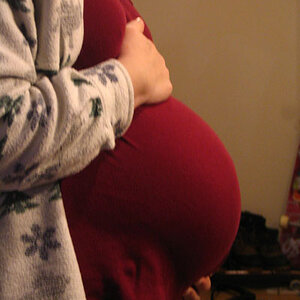
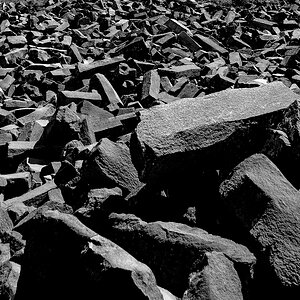
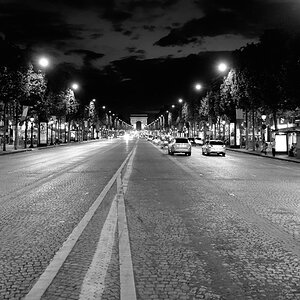
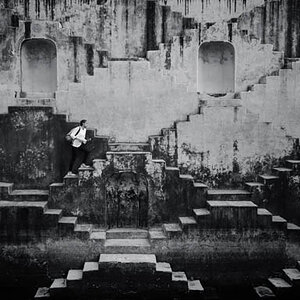


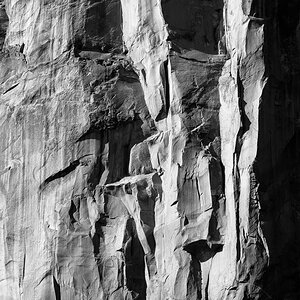

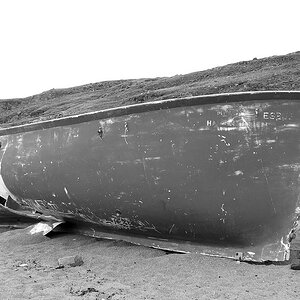
![[No title]](/data/xfmg/thumbnail/37/37090-2836dacbe52360ec3fdc1246a4e1d045.jpg?1619737880)
